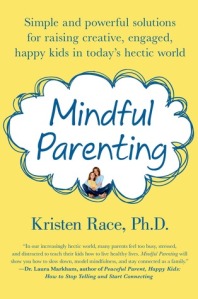Originally posted at The Blue Room.
Yesterday I listened to a Radiolab podcast about trans-cranial direct current stimulation, tDCS. From the show’s description:
Learn a new language faster than ever! Leave doubt in the dust! Be a better sniper! Could you do all that and more with just a zap to the noggin? Maybe.
In the last couple years, tDCS has been all over the news. Researchers claim that juicing the brain with just 2 milliamps (think 9-volt battery) can help with everything from learning languages, to quitting smoking, to overcoming depression. … [We] think through the consequences of a world where anyone with 20 dollars and access to Radioshack can make their own brain zapper. And finally, [we hear] about the unexpected after-effects of a day of super-charged sniper training and wonder about a world where you can order up a state of mind.
Access the entire twenty-five minute episode (called 9-Volt Nirvana) at the Radiolab website.
The show features science writer Sally Adee, who went through a sniper-training simulation, first without the benefit of tDCS, then with it (with an electrode attached to her temple and the other to her arm). The first time, she scored a paltry 15%. The second time? 100%.
Adee reported feeling relaxed, present and fully awake during the tDCS exercise. A twenty-minute training simulation seemed to take three minutes. She described her experience as one of “flow”—that state of mind in which things feel effortless, even graceful. And that feeling continued even after the tDCS was disconnected. (Others on the program cast doubt on this—the effects are usually short-lived, and there could have been a placebo effect.)
Many folks are interested in tDCS because of the potential for learning skills more easily. I’m more interested in the state of mind stuff. I talk a lot about flow in my Sabbath workshops, because that’s what living Sabbathly is all about. Jesus was a master of flow—the stories we have of him show a man who moved fluidly in time and space, who seemed to know what each moment required, whether it was contact with the crowd, healing someone in need, enjoying food and drink, or rest.
So I listened to the Radiolab episode with great interest, and great ambivalence. For me, living Sabbathly is a lifelong endeavor. I get it wrong all the time. Is it a cheat to zap our brains into a more balanced or receptive state? And if we do think it’s a cheat, how is that different from a person who takes anti-depressants or anti-anxiety medications?
One might respond, “Well, those medications are for diagnosable mental illnesses.” Fair enough. Then how is tDCS different than aromatherapy, or massage? How are those things not “cheats”? (For the record, I think there is a difference between tDCS and massage. But what is it, exactly?)
It should be said (and was said in the podcast) that tDCS is waaaaaay in its infancy in terms of scientific study. People are experimenting on themselves with DIY kits and YouTube instructional videos. I’m not anywhere close to jumping on this bandwagon. But if we could live more Sabbathly with $20 of spare parts? Would we want to? What would be gained and lost?
~
Image is from an Intro to tDCS website.
~
After a three-month hiatus, a shiny new edition of my e-newsletter went out earlier this week. Don’t miss the next one! Sign up!










